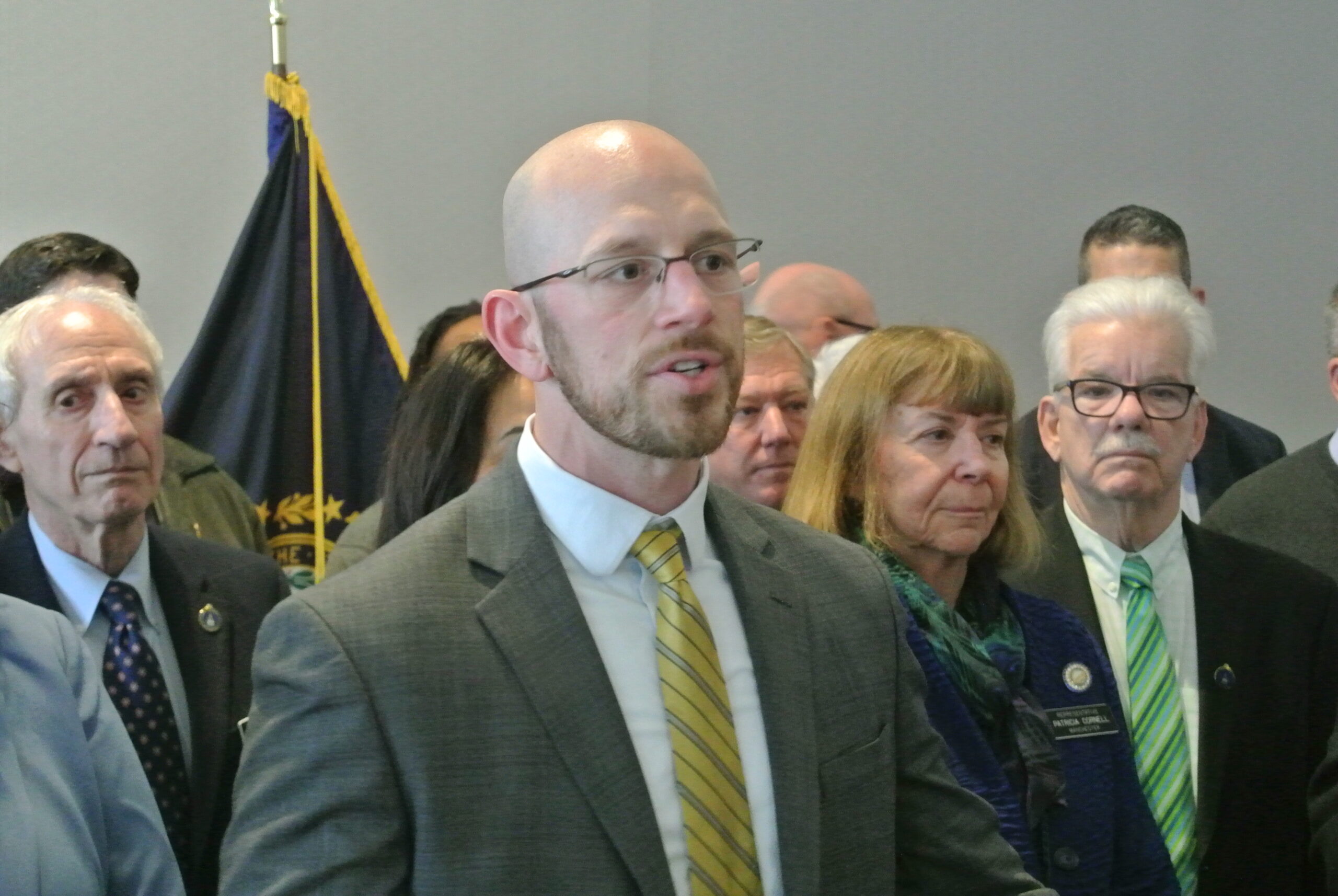Despite Losing His Appeals, Woodburn Still Fighting to Stay out of Jail

Disgraced former Democratic leader Jeff Woodburn is out of appeals, but he’s still trying to avoid jail time on two counts of criminal mischief, the only surviving convictions from the seven-year-old domestic violence legal saga that ended his career.
Woodburn’s attorney, Mark Sisti, is asking the court to suspend the two 30-day sentences against his client, allowing the former Senate Minority Leader to essentially go free. Sisti told NHJournal on Monday it makes no sense to jail Woodburn. But the New Hampshire Attorney General’s Office continues to pursue the punishment.
“I can assure you, no one in the state of New Hampshire is serving jail time for similar convictions,” Sisti said. “We’re talking about someone with absolutely no criminal record.”
Woodburn was contacted by NHJournal, but he referred questions to Sisti.
While the state Democratic Party has been silent on Woodburn’s case, he has the public backing of at least one former Democratic lawmaker, his current girlfriend Patty Dwyer.
“Jeff is a wonderful man who is honest, intelligent, funny, and thoughtful,” Dwyer wrote to Coos Superior Court Judge Peter Bornstein.
Woodburn first met Dwyer when they both served as Democratic state representatives. Dwyer, a party volunteer and former teacher from Manchester, has long been a controversial Woodburn booster. Dwyer took to social media in 2021 to attack the victim after Woodburn’s first trial ended in convictions on simple assault, domestic violence, and the two criminal mischief counts.
“The ‘lady’ is a huge liar and a thief, not to mention a SOCIOPATH!” Dwyer posted on social media. “She is an affront to woman who actually do experience domestic violence! Botton line; its the age old story of a woman scorned!” [All typos in the original.]
Dwyer’s comments attacking a domestic abuse victim did not prevent the Manchester Democratic Party from giving her the C. Arthur and Lillian Soucy Award in 2021 for her leadership in the party. The award is named for the parents of current Senate Minority Leader Donna Soucy (D-Manchester.) Soucy did not respond to a request for comment on Monday.
NHJournal reached out to North Country Democrats running in this year’s election about whether it’s time for Woodburn to simply serve his sentence after losing his appeals. None would agree to comment on the record.
In his motion opposing jail time for his client, Sisti argues Woodburn is being unfairly punished because he was in a high profile elected office. Sisti is asking for the sentence to be suspended for two years, during which Woodburn will remain on good behavior.
“He should not be disproportionately punished because of his notoriety or the media attention to this matter. He should stand on equal footing with all other N.H. citizens in a similar situation with a similar background. A sentence involving actual incarceration would be excessive and would serve no logical purpose,” Sisti wrote.
The New Hampshire Attorney General’s Office did not offer a comment other than the court motion filed in opposition to Sisti’s request for no jail time.
“The defendant’s objection should be summarily denied, as the defendant has waived any and all rights to appeal or request modification of the previously imposed sentence. Furthermore, the defendant has offered no valid basis upon which this court could grant his request,” Senior Assistant Attorney General Joshua Speicher wrote.
Sisti said the state is trying to save face in its pursuit of Woodburn after major setbacks to the prosecution ended up gutting the case.
“What have they got left after everything? After seven years, they have two minor misdemeanor convictions, and nobody got hurt on either of them,” Sisti said.
Woodburn was first charged in 2018 for allegedly abusing his then girlfriend. He was convicted in May 2021 on counts of domestic violence, simple assault, and criminal mischief after his first trial in 2021, but a later Supreme Court ruling overturned the domestic violence and simple assault charges, sending them back for a second trial. That second trial ended with a hung jury earlier this year, and New Hampshire Attorney General John Formella opted to drop the case rather than go for a third trial.
According to court records, Woodburn bit the woman during a December 2017 argument as she was driving him back from a party. An intoxicated Woodburn demanded to be let out of the car, and planned to call a friend for a ride. When the woman reached to take his phone, he allegedly bit her hand, according to the allegations.
Woodburn argued in this year’s second trial that he was acting in self-defense when he bit the woman.





